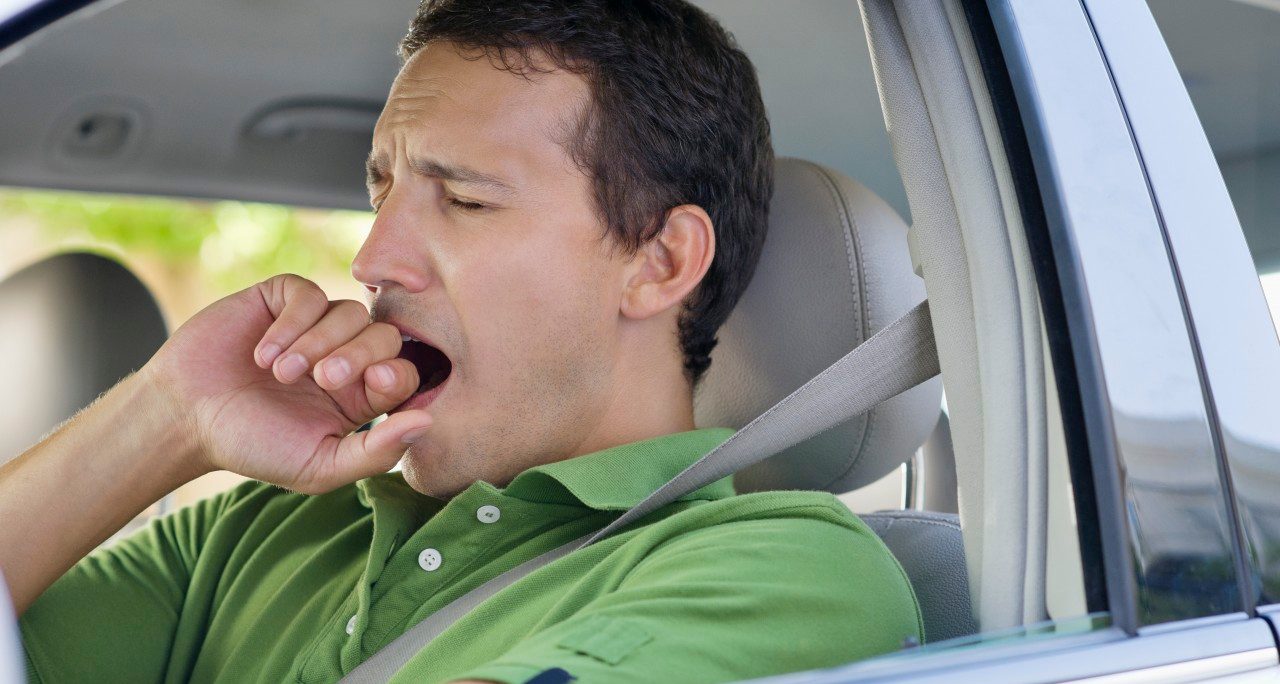Extra Weight and Depression Can Cause Daytime Sleepiness

It’s not just lack of sleep that has you yawning during the day.
Do you chug down several cups of coffee in the morning to wake up but still end up yawning and feeling drowsy during the day? You aren’t alone.
Excessive daytime sleepiness (EDS) is a common health problem that can have serious work and safety consequences, according to Pennsylvania State University College of Medicine sleep researchers. Obviously, you can’t do your best on the job if you are groggy and longing for a nap. And you may be putting yourself, and others, in harm’s way driving to and from work while sleepy. Drowsy drivers in the U.S. are blamed for at least 100,000 crashes a year, injure 40,000 people, and cause over 1,500 deaths, according to the National Sleep Foundation.
Although previous studies have linked EDS with obesity, depression, and sleep apnea, the Penn State investigators looked at specific mechanisms causing chronic sleepiness and tracked people with EDS over several years. Their findings turned up some surprises — including how extra pounds result in daytime sleepiness.
Obesity is associated with sleep apnea, a disorder in which people stop breathing briefly while asleep. So it seems logical that this condition would be blamed for daytime sleepiness in the overweight. But the Penn State findings refute the idea. Obesity, not sleep apnea, is the crucial factor in EDS.
"Body weight predicted EDS better than sleep apnea. This data is also consistent with studies showing that CPAP (continuous positive airway pressure) machines greatly reduce the number of apneas, or pauses in breathing, that a person with sleep apnea experiences during the night, but don't effectively reduce daytime sleepiness — probably because CPAP does not help reduce weight," said Julio Fernandez-Mendoza, MD, assistant professor of psychiatry at the Penn State Sleep Research and Treatment Center.
The researchers studied 1,395 men and women who reported they suffered from EDS. The study participants were evaluated for one night in a sleep laboratory and any physical or mental health conditions they were being treated for were documented. After about seven and half years, the volunteers were checked again for symptoms of excessive daytime sleepiness.
Those who were overweight suffered the most sleepiness and fatigue during the day, no matter how much they slept at night. But the people who lost weight during the study not only shed excess pounds, they also lost their EDS.
"Obesity and weight gain predicted who was going to have daytime sleepiness," said Fernandez-Mendoza. "Moreover, weight loss predicted who was going to stop experiencing daytime sleepiness, reinforcing the causal relationship."
The research showed the primary underlying mechanism that makes overweight people feel inappropriately tired is likely low-grade chronic inflammation. Fat cells, especially those located around the abdomen, release immune compounds called cytokines that can trigger sleepiness.
The study also revealed that depression resulted in a high incidence of EDS. People who were depressed had more difficulty falling asleep and staying asleep all night, causing chronic daytime drowsiness.
"People with depression typically ruminate, they have difficulty shutting their minds off and they are more likely to have elevated stress hormones," Fernandez-Mendoza said. "The mechanism that we believe is playing a role here is hyperarousal, which is simply going to bed and being too alert; in other words, people with depression feel fatigued but do not necessarily fall asleep during the day."
The researchers also discovered that EDS is caused in a minority of people by a physiologic sleepiness disorder of the central nervous system. Even though these people fall asleep faster and sleep longer at night than most, they are still groggy in the daytime.
Sufferers of daytime sleepiness are often prescribed sleeping pills and advised to simply snooze more at night. But the Penn State researchers concluded that one-size-fits-all approach is bound to fail. Instead, personalized sleep medicine targeting the individual causes for EDS, including weight loss and treating depression, should be more effective.
Check out our Sleep Care section for information on sleep disorders and strategies to help you get better quality sleep.
Updated:
April 08, 2020
Reviewed By:
Janet O’Dell, RN